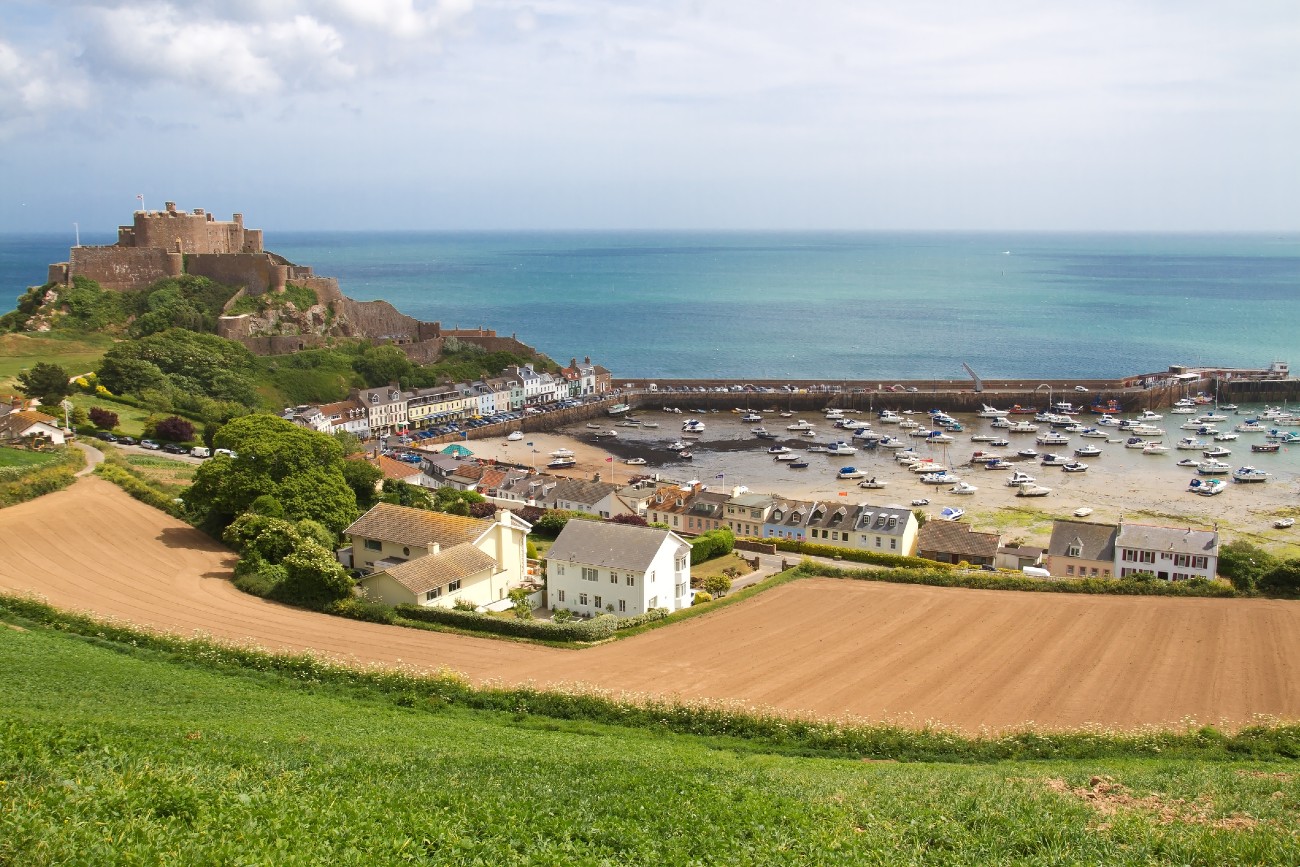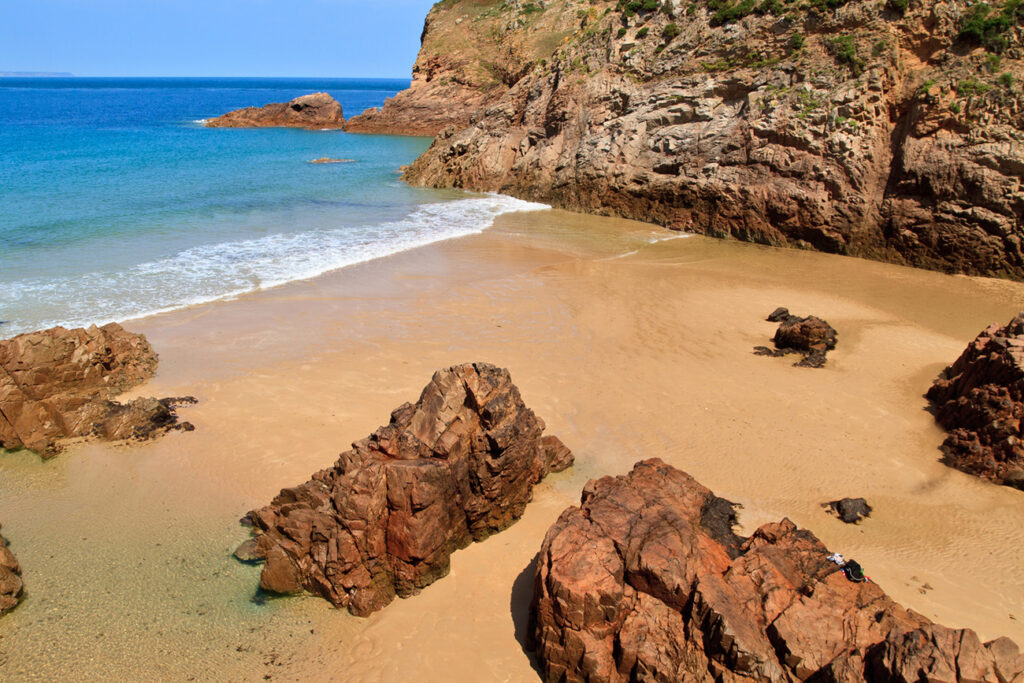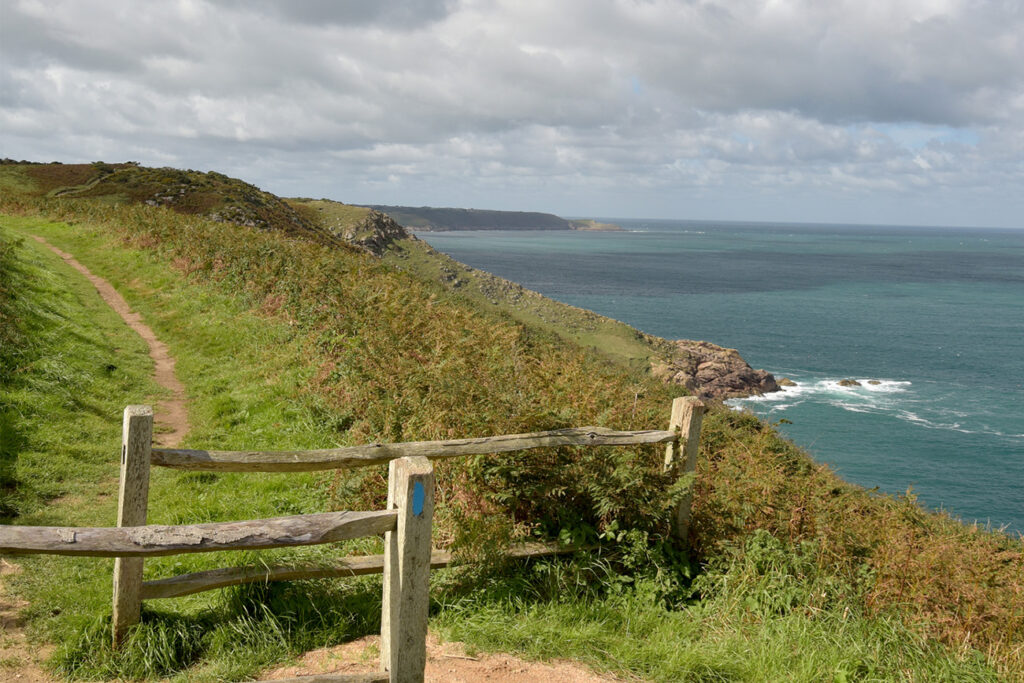Jersey
The Bailiwick of Jersey is the largest of the Channel Islands and is situated the furthest south, about 25 kilometres from the French coast. This proximity to the European mainland gives it a distinctive continental flavour, while still retaining the charms of the seaside.
Despite being about 14 kilometres long by 9 kilometres wide, Jersey has extensive stretches of coastline, incorporating both rugged headlands and fantastic sandy beaches.
The thriving capital of St. Helier in the south gives way to sleepy country villages and narrow lanes, all waiting to be explored. The island’s rich history is evident in the form of castles and coastal forts, while its culinary heritage is just as diverse. Boasting a friendly, laid-back atmosphere and warm summer weather, it’s no surprise that Jersey is popular among tourists from all over the world.
Things to See and Do in Jersey
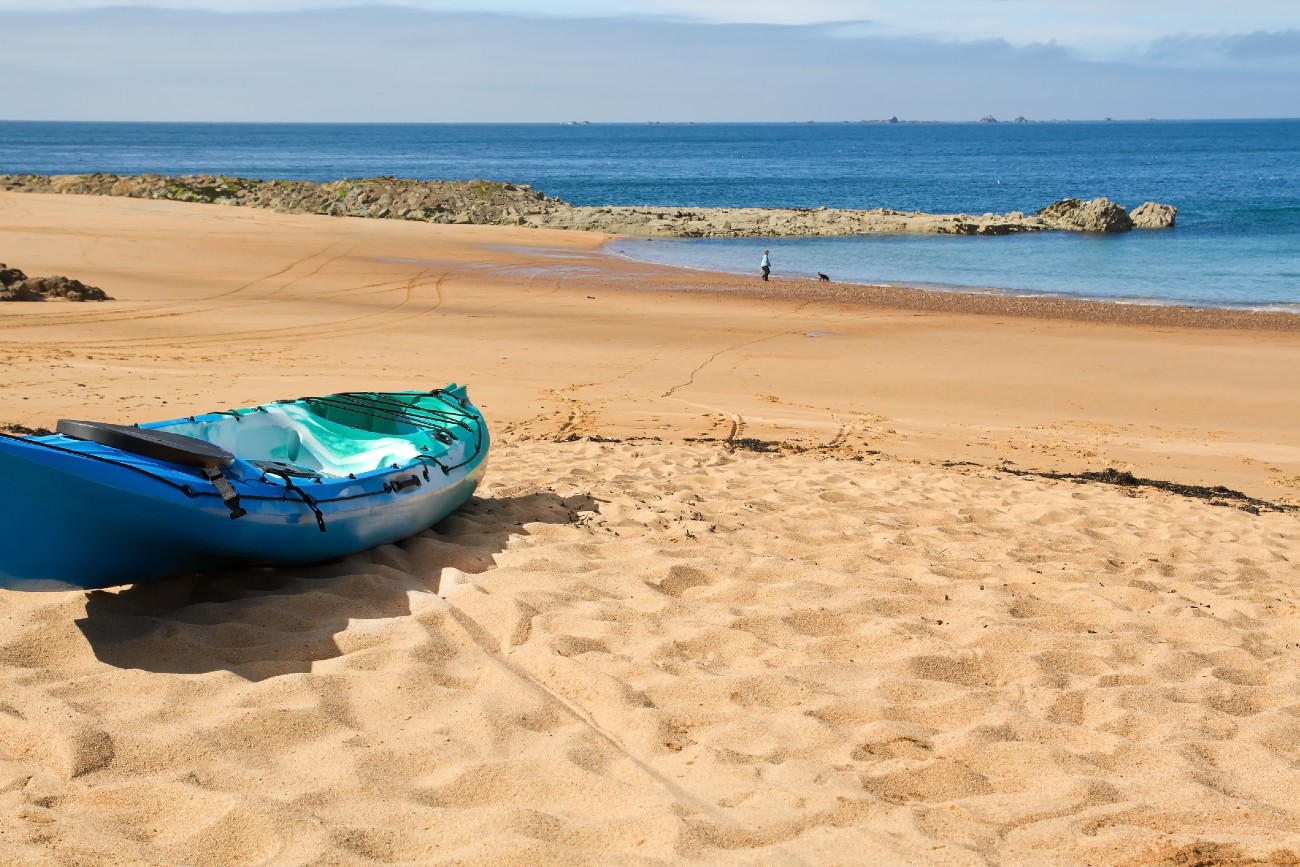
Greve de Lecq Beach, Jersey
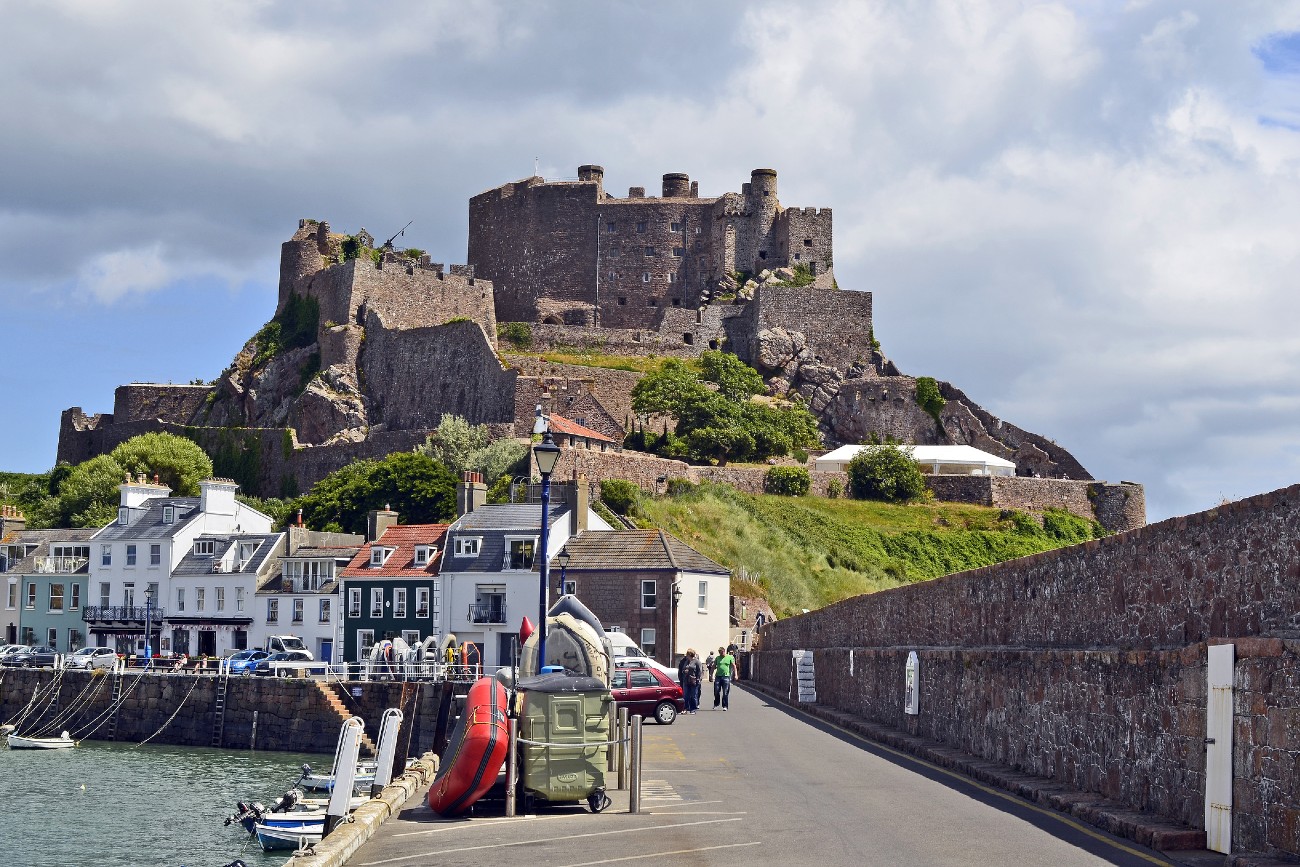
Gorey Castle, Jersey
Typical Costs When Travelling
Accommodation – There is a great range of accommodation options in Jersey, with numerous hotels, guesthouses, B&Bs and Airbnbs. Comparison websites can be a great way to find good hotel deals. A typical price for a 3-star hotel in the capital in September is around £80 per night, while more budget-friendly hotels might come as low as £55 per night. These will be cheaper in the off-season.
Camping is easily the cheapest form of accommodation on the island, with several campsites available. There is also a hostel near the Durrell Wildlife Trust, which offers free breakfasts and entry to the nearby conservation park.
Food – The food in Jersey is often one of the highlights for visitors, however it is generally no more expensive than other European destinations. The many beach cafes on the island offer great value for money, with lunches costing as little as £8 from some outlets.
A typical price for a lunchtime meal with a drink in St. Helier is around £14, while fine dining will be pricier. Everyday food and drink from shops tend to be slightly more expensive than in the UK.
Transportation – One of the best ways to get around Jersey is via the local bus service. Liberty Bus Service has its main depot in St. Helier. From here, you can travel almost anywhere on the island. Single fares cost £2, or you can make use of the service’s Hop-On Hop-Off passes. Starting from £8, these can be used on any route and allow you unlimited travel within a period of either 1, 2, 3 or 7 days.
If you would like a bit more freedom, Hertz and Europcar both operate car hire services on Jersey. The typical cost of hiring a car for 2 days can be as low as £65, and as the island is very small, you are unlikely to use much petrol.
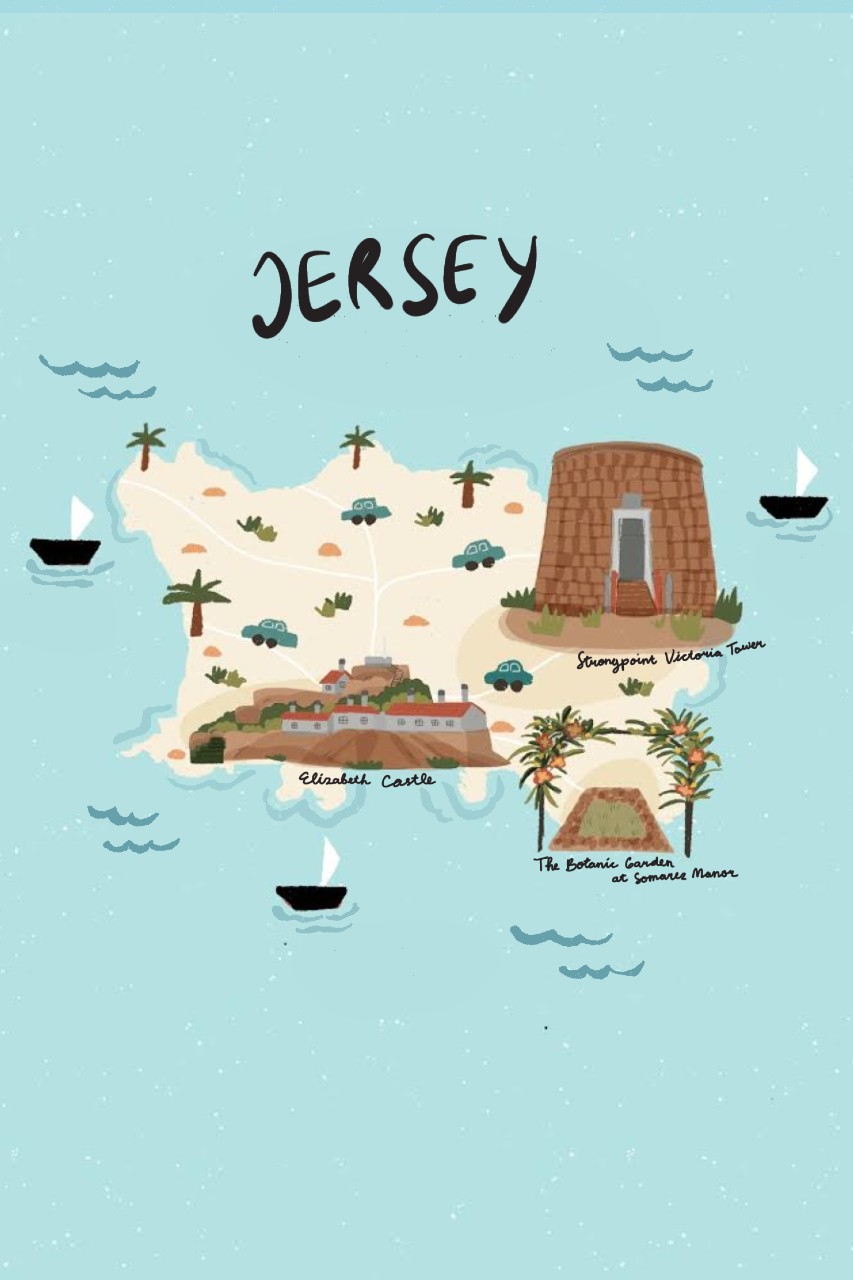
Suggested Daily Budget: 57 – 66 EUR / 70 – 80 USD / 49 – 57 GBP
(Note: This is a suggested budget assuming you’re staying in a hostel, eating out a little, cooking most of your meals, and using local transportation. Using the budget tips below, you can always lower this number. However, if you stay in fancier accommodation or eat out more often, expect this to be higher!)
Money Saving Tips
Where to stay in Jersey? Look no further for the best areas and hotels!
What can you expect from Jersey?
Jersey has one of the highest tidal ranges anywhere in the world, with its land area almost doubling at low tide. This uncovers extensive areas of rockpools, along with providing access to several small offshore islands and castles such as that of Elizabeth Castle, in St. Aubin’s Bay.
Jersey used to have a thriving wool trade, so much so that it was one of the island’s largest industries at one point. Knitted jumpers came to be known as ‘Jerseys’ for this reason, and this name is still used widely throughout the UK.
The island has also left its mark on global agriculture, with the famous Jersey cattle breed originating here. Take a stroll through the countryside and it won’t take long before you come across some of these majestic beasts.
Related articles
November 28, 2020






